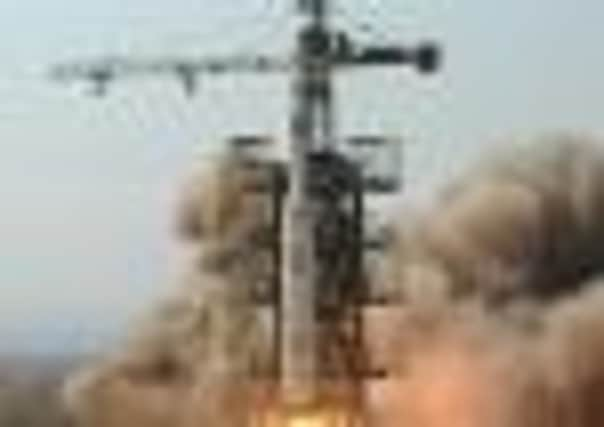Analysis: China cannot afford to let North Korea run wild forever


But that does not appear to be the case in North Korea, where the botched launch of its long-range Unha-3 rocket has merely set the stage for a new level of defiance: the detonation of yet another nuclear device, perhaps bigger than in the past.
The world, it seems, must be shown that North Korean scientists, despite their lack of success in producing food, have mastered weapons of mass destruction. And such a demonstration may confer some legitimacy on Kim Jong-un, a boy-dictator whose only accomplishment to date has been to prove on television he can ride a horse.
Advertisement
Hide AdAdvertisement
Hide AdThere used to be a measure of sympathy in Asia for the North Koreans and their systematic defiance of the international community. But as the unanimous adoption of a United Nations Security Council statement on 16 April suggests, no-one, including the Chinese, is making the case any more for nuance in dealing with the North.
The Chinese, in particular, appear to have lost patience. Reportedly, in the run-up to the rocket launch, the North Koreans refused to respond to China’s pleas to stand down. The Chinese have had centuries of experience dealing with the Korean peninsula, but not even receiving a reply to their communications was a new insult.
If the North Korean problem is ever to be solved, it will be when China says that it has had enough. That day may be approaching, but there are signs that China’s trade and investments in North Korea could oddly make China dependent on the North.
Chinese traders and investors have in recent years moved in as Japan and South Korea, two of North Korea’s longstanding trade partners, have withdrawn, owing to official sanctions. China’s trade with North Korea has increased from around $1 billion (£0.6bn) in 2005 to more than $5.1bn (£3.16bn) in 2011.
China’s government has justified this by claiming North Korea will come to appreciate a market economy. But that is simply an attempt to make a virtue out of necessity: for a country with one of the world’s biggest bureaucracies, China has a surprisingly difficult time telling its business community not to do business with someone.
Longstanding Chinese reluctance to participate in international sanctions is often attributed to their belief in judging actions by whether or not they work. Perhaps the real pragmatism on display in the case of North Korea is a reluctance to rein in the business community at a time of slower growth.
China’s rise is one of the most studied developments of our time. It is, after all, a country that can be described as a civilization, and its trajectory has been far more impressive than that of any North Korean rocket. But China still has much to do, both internally and in its dealings with the rest of the world. Some of that consists in reconciling past commitments with current interests. All countries carry a burden from the past But the burden of protecting North Korea from the world’s justified outrage is one China cannot afford to carry for long.
• Christopher Hill was one of the main architects of American diplomacy in the 1990s.